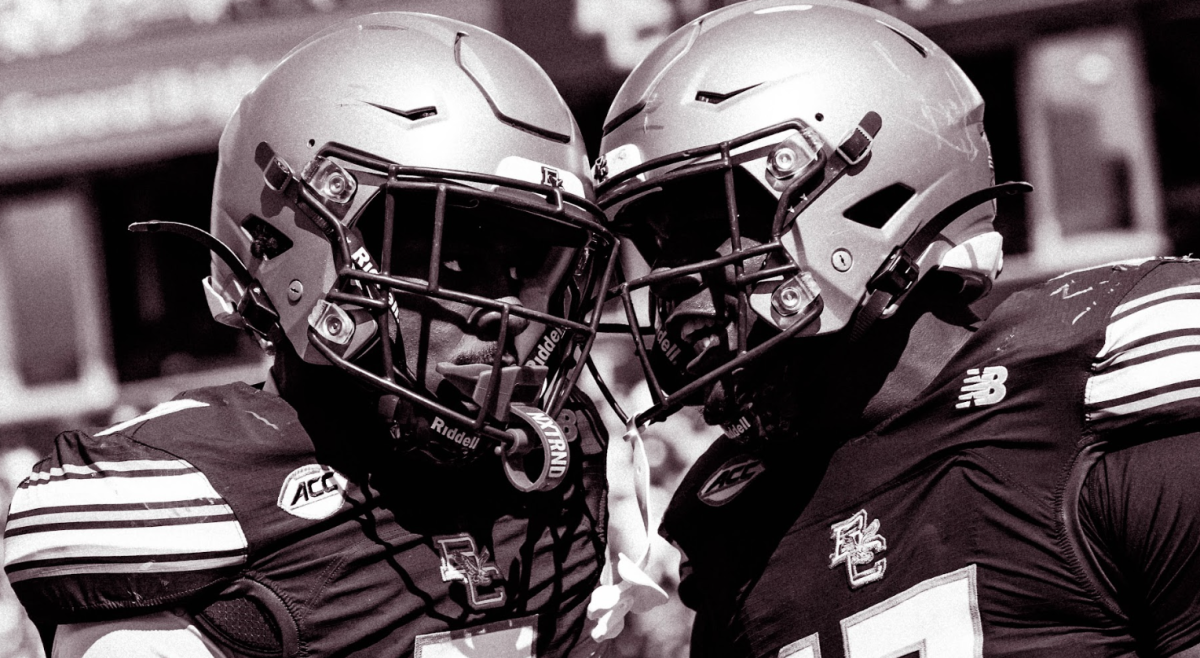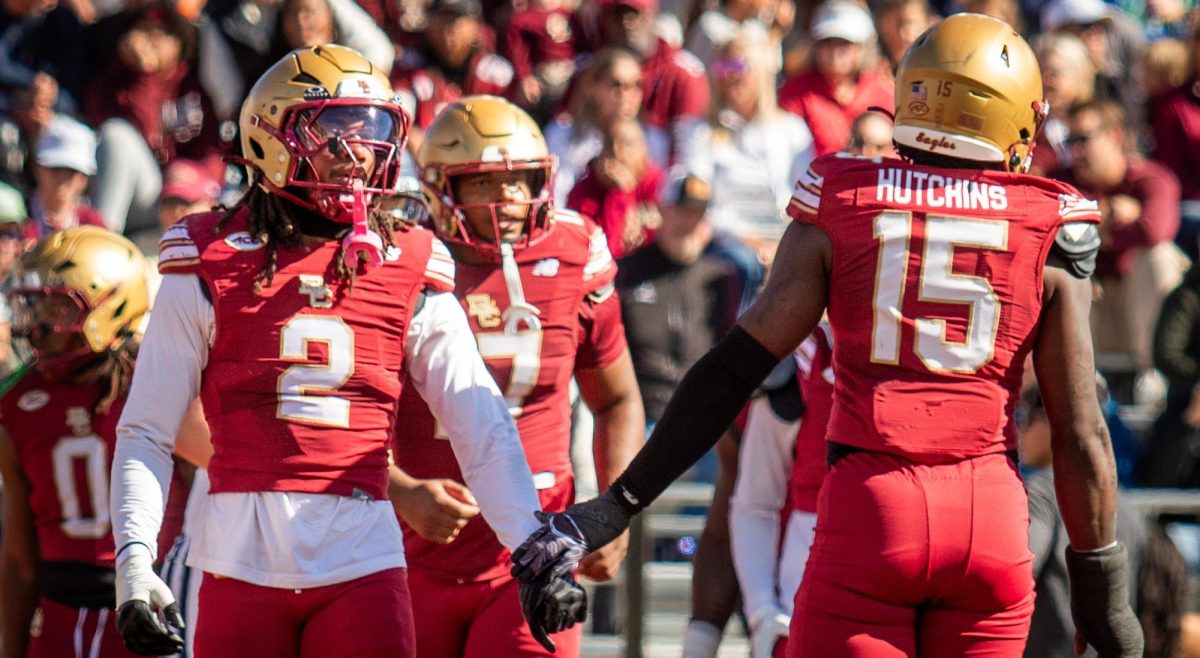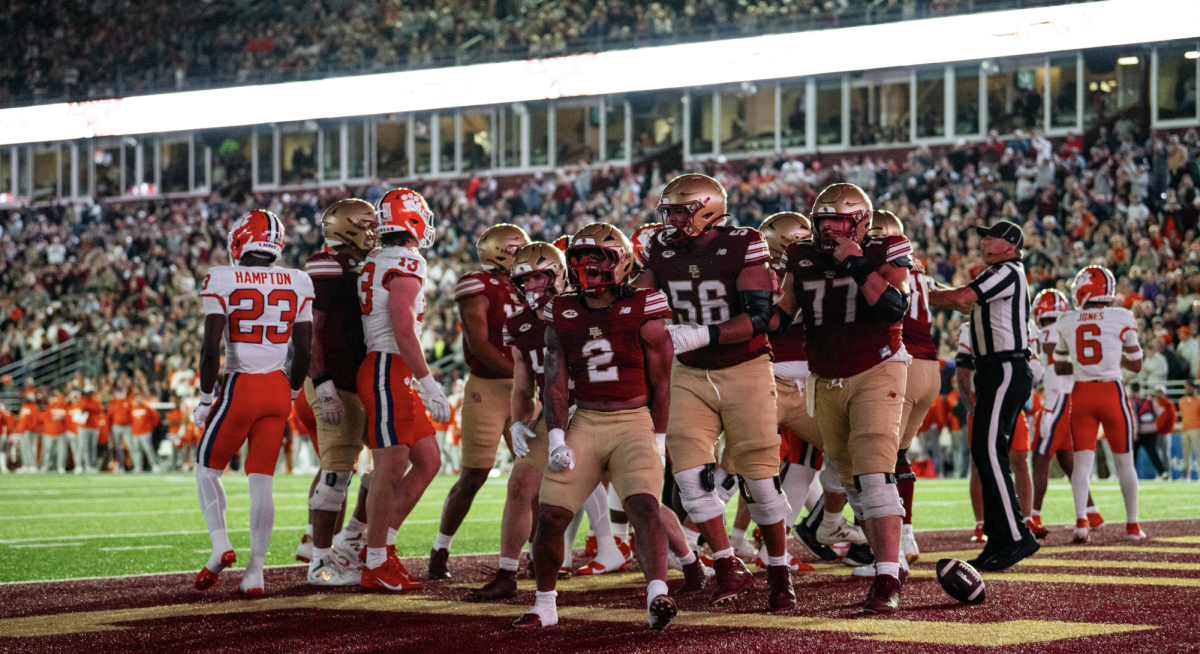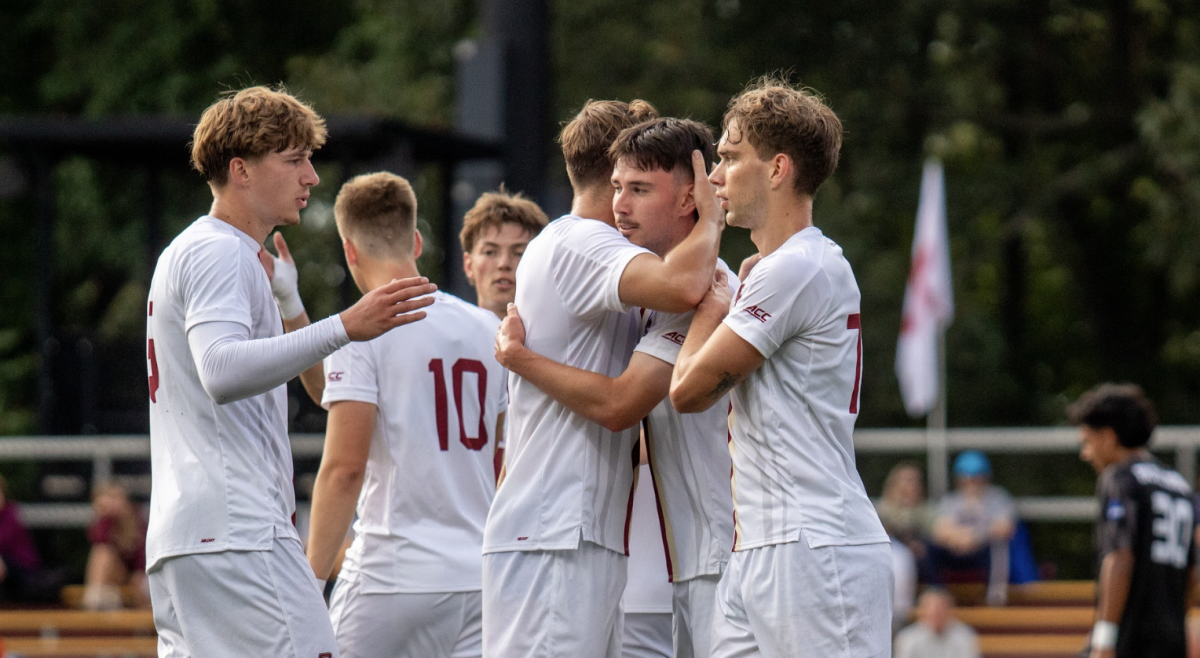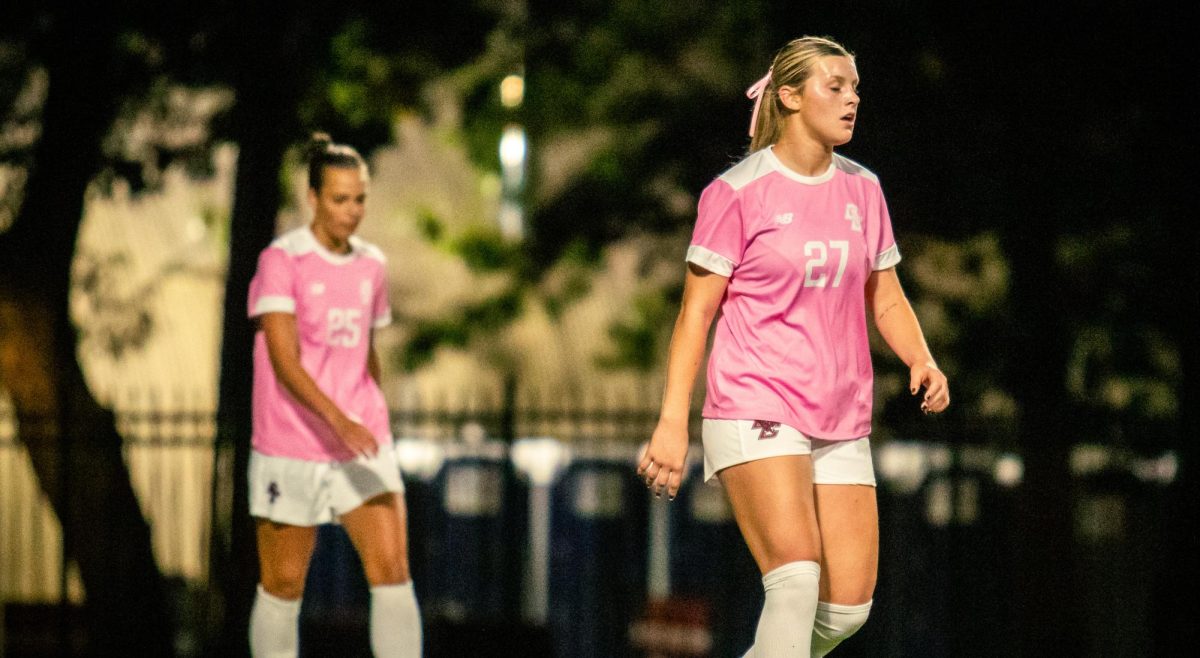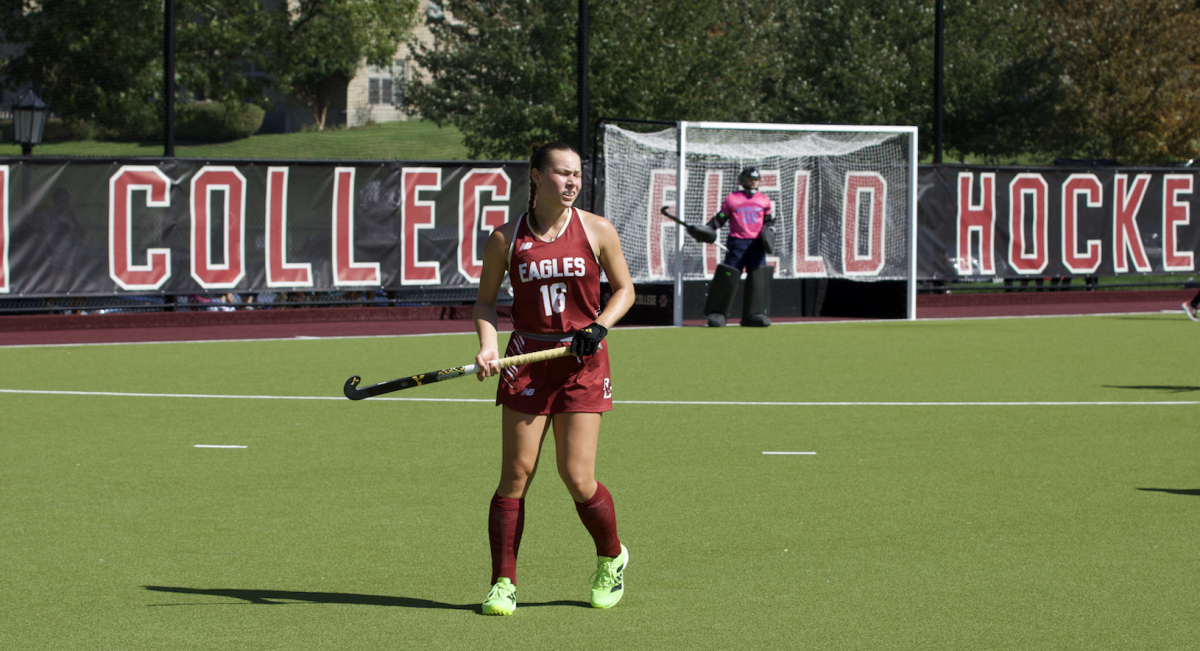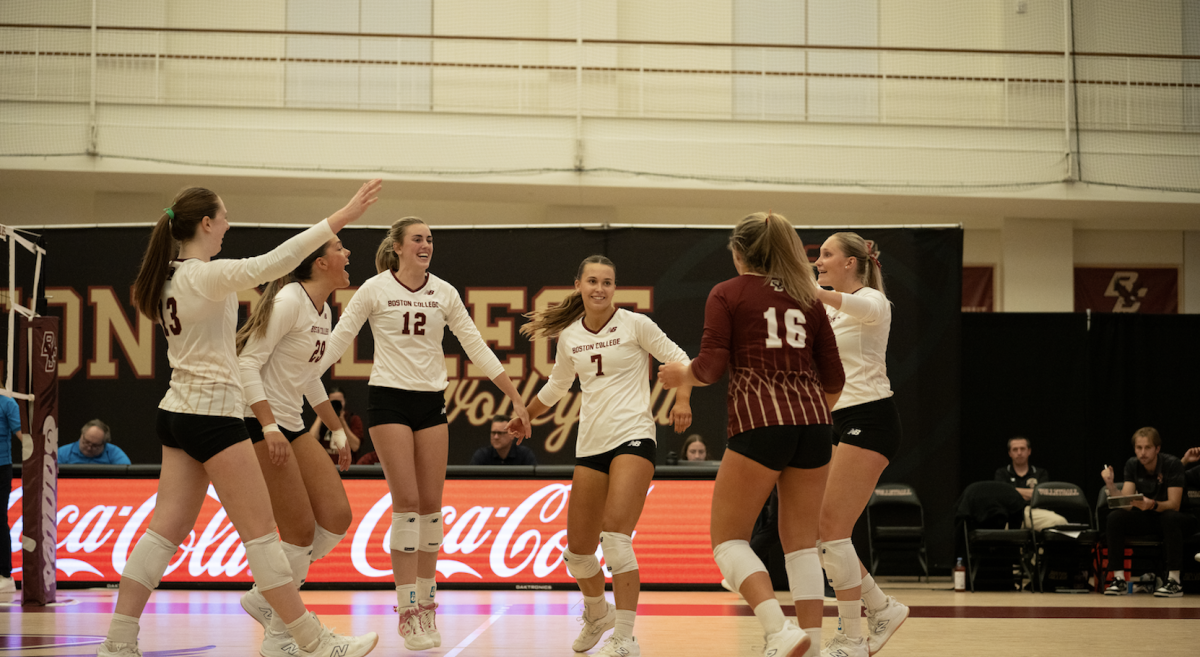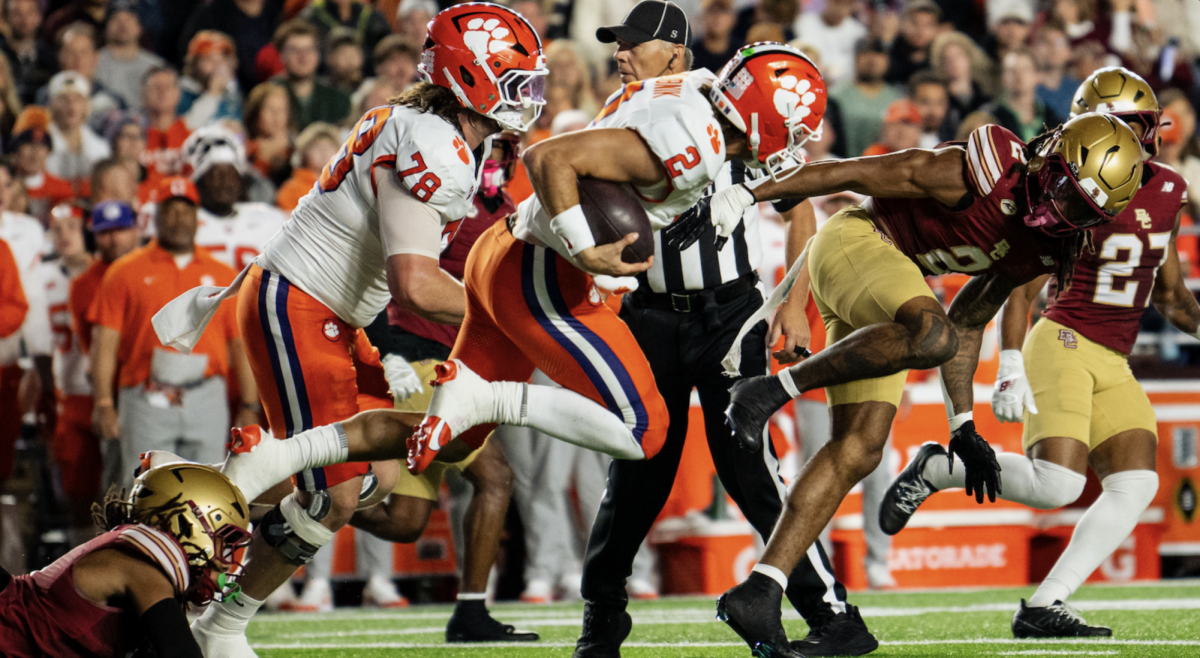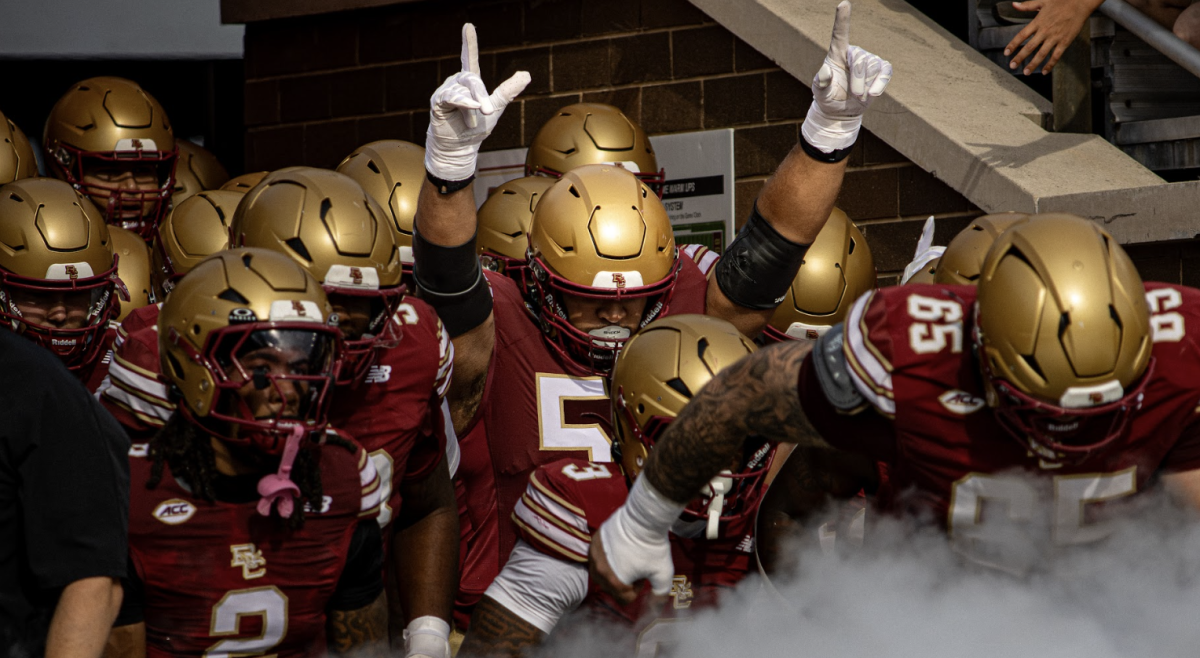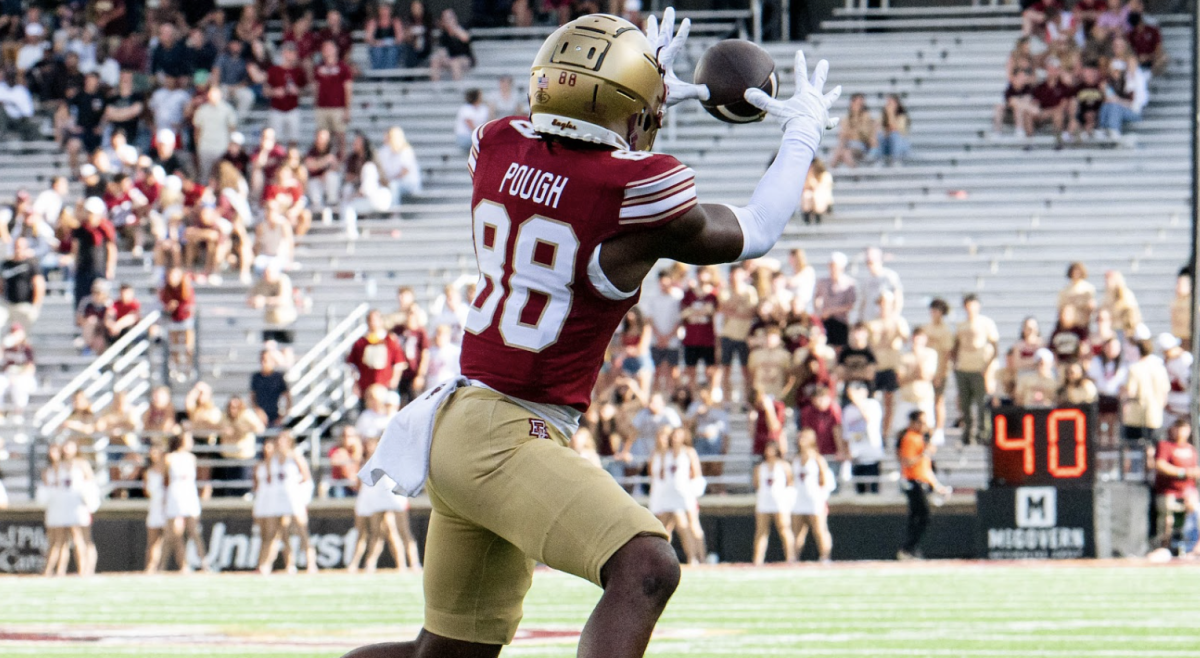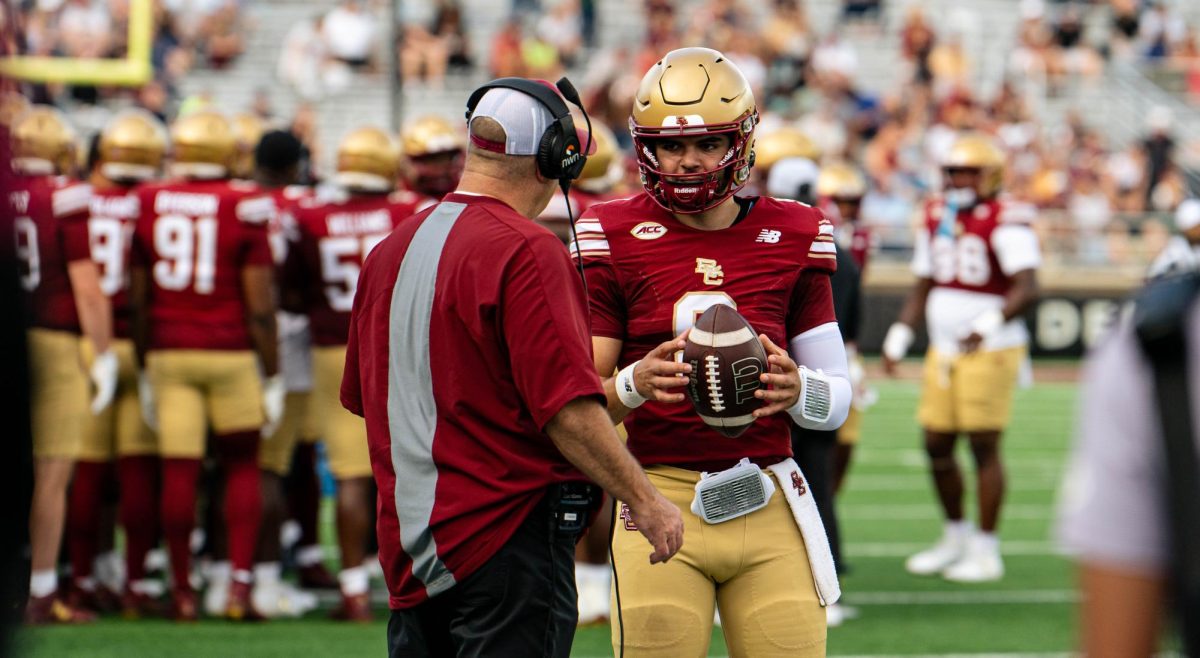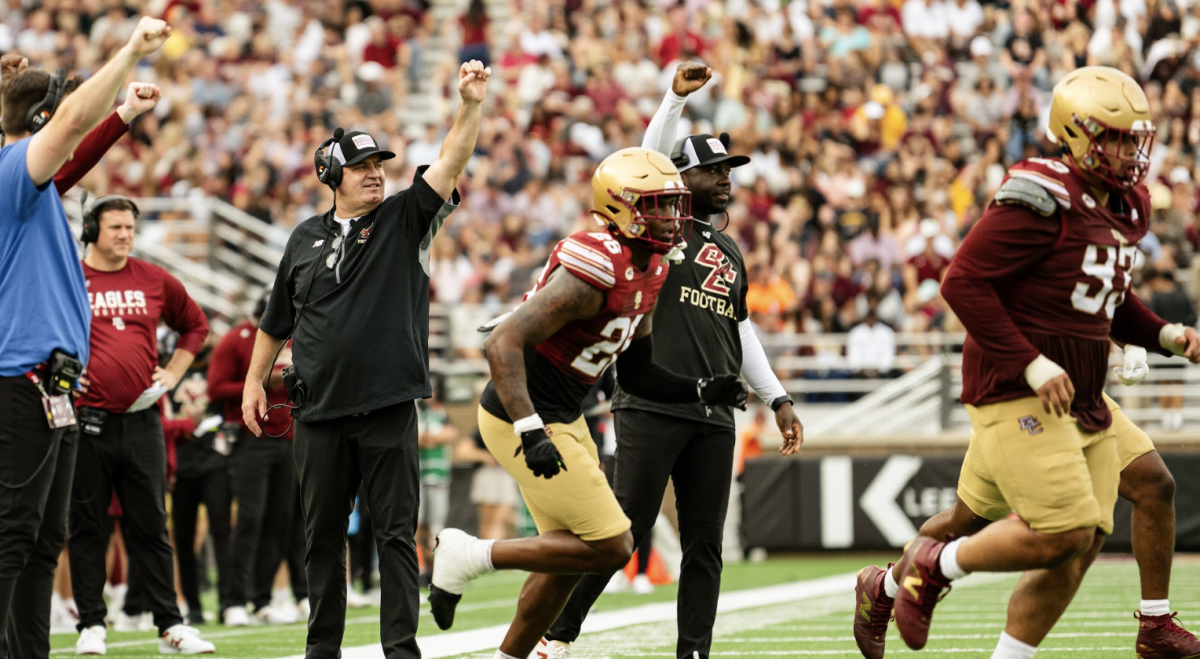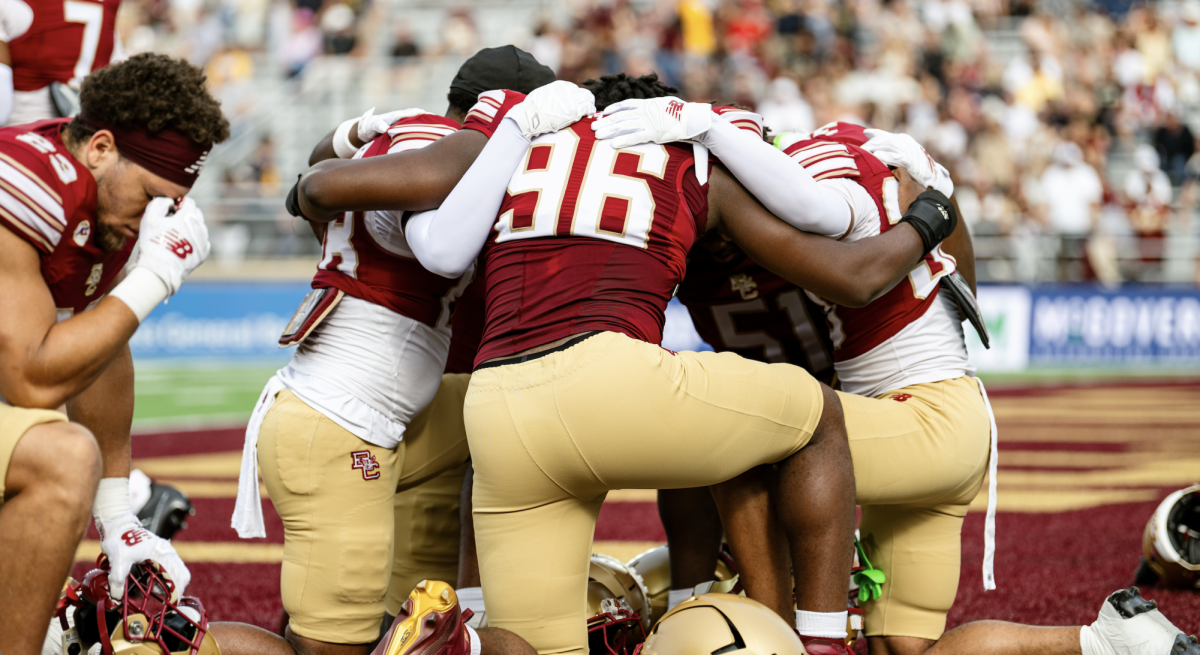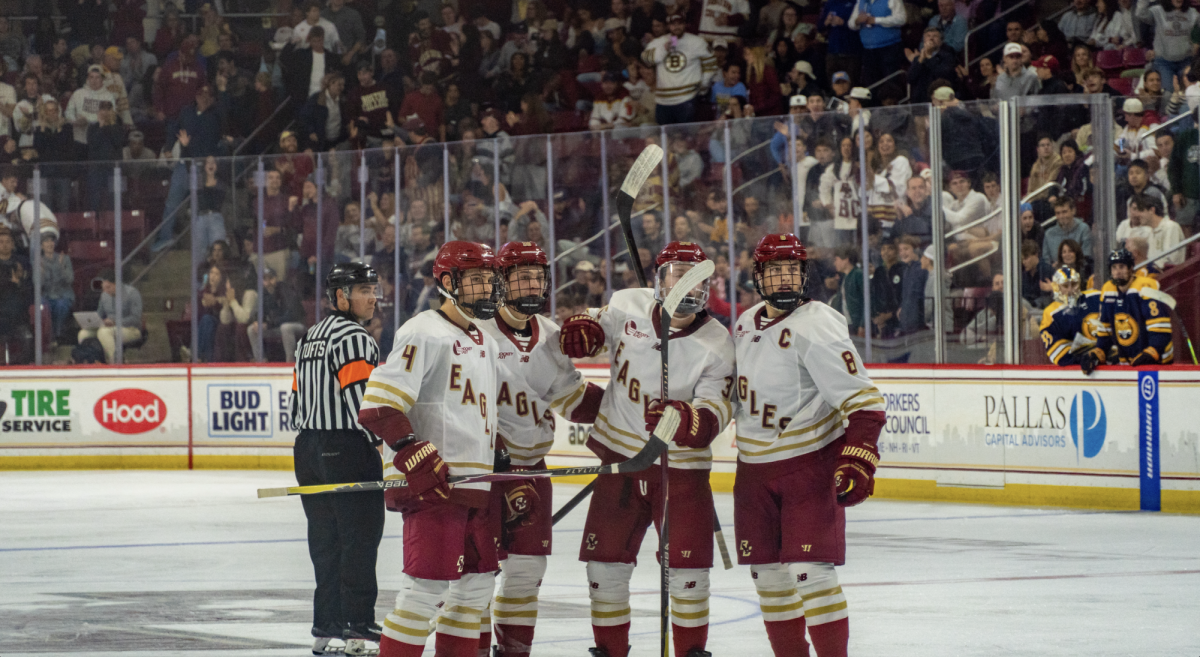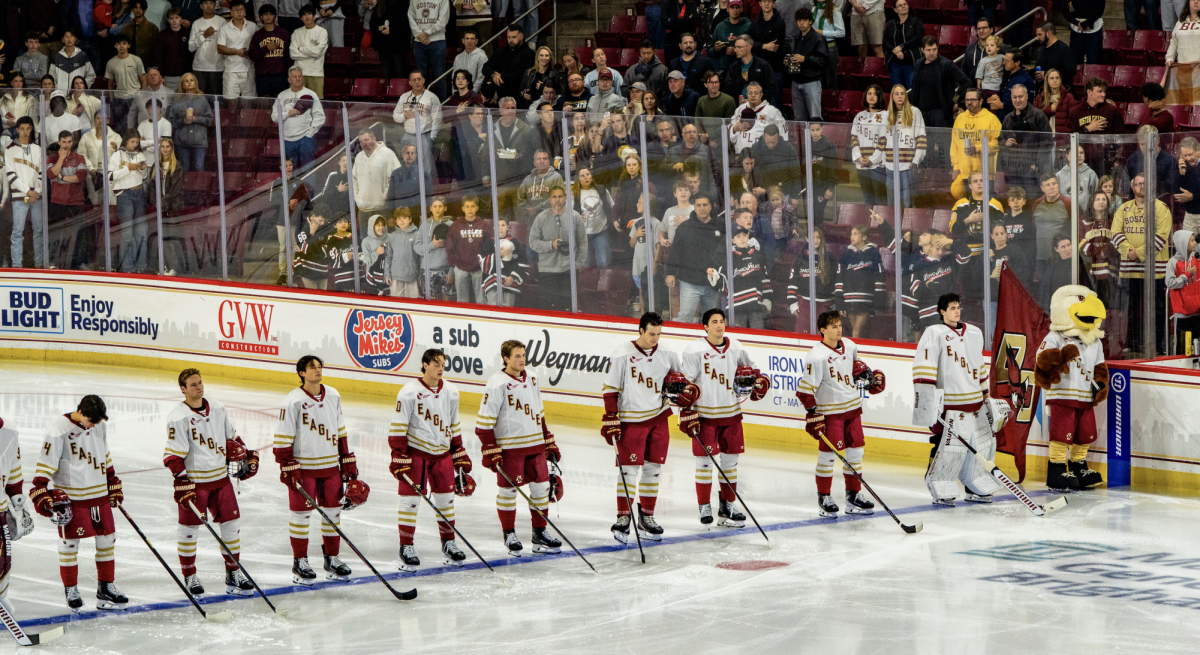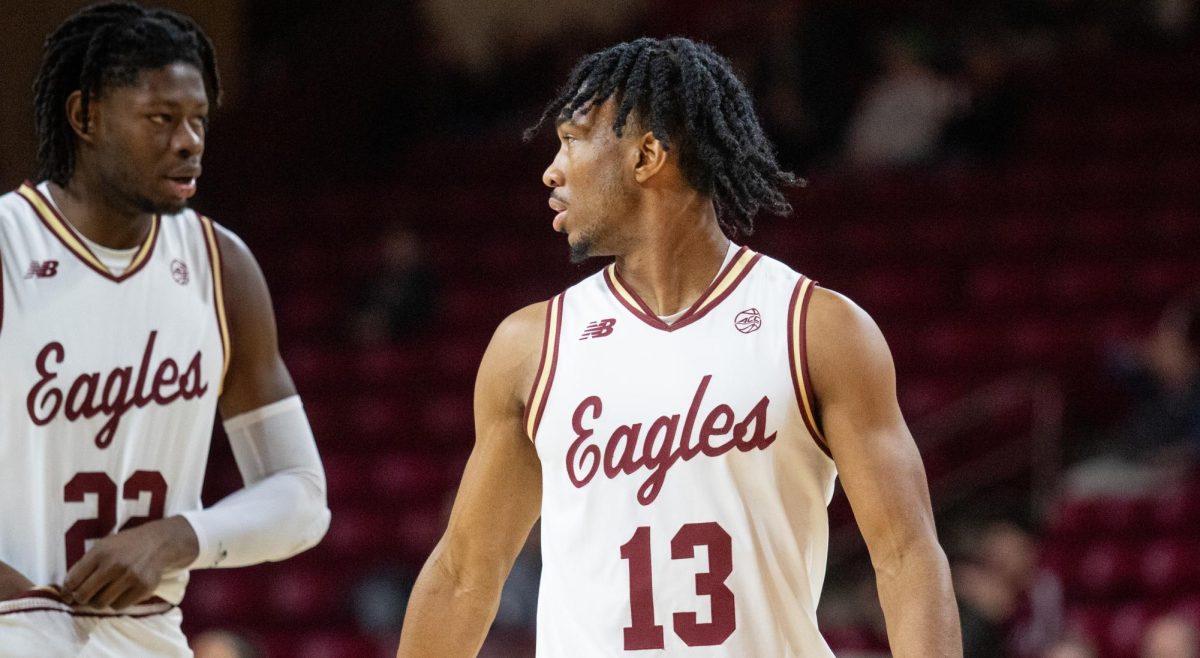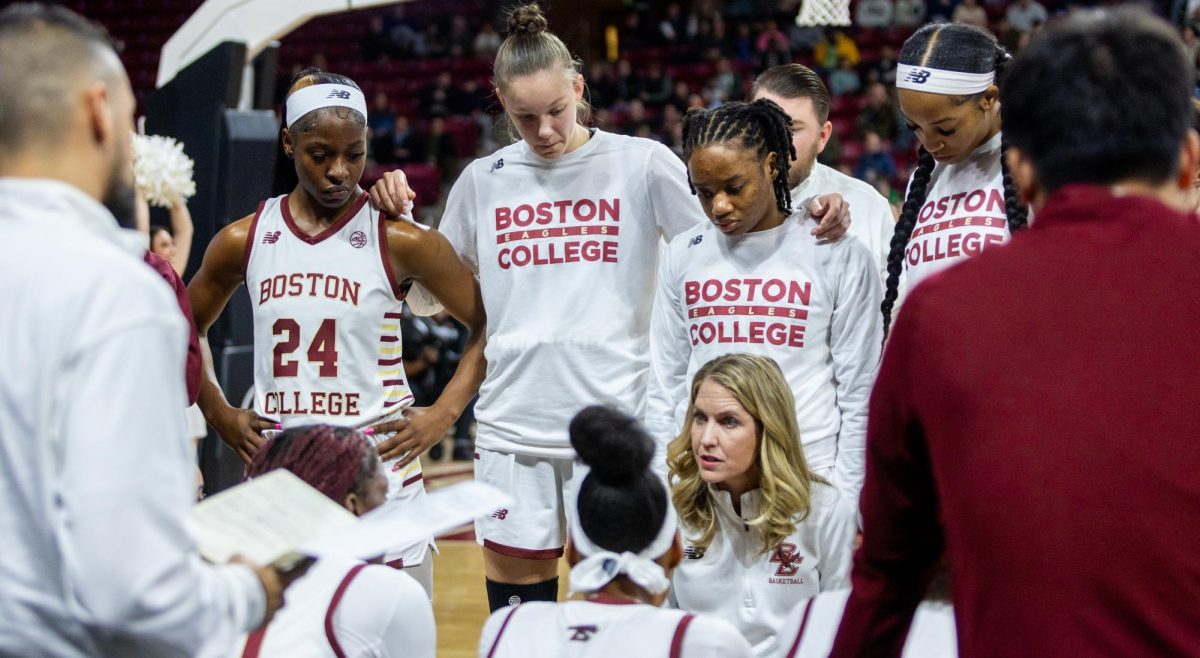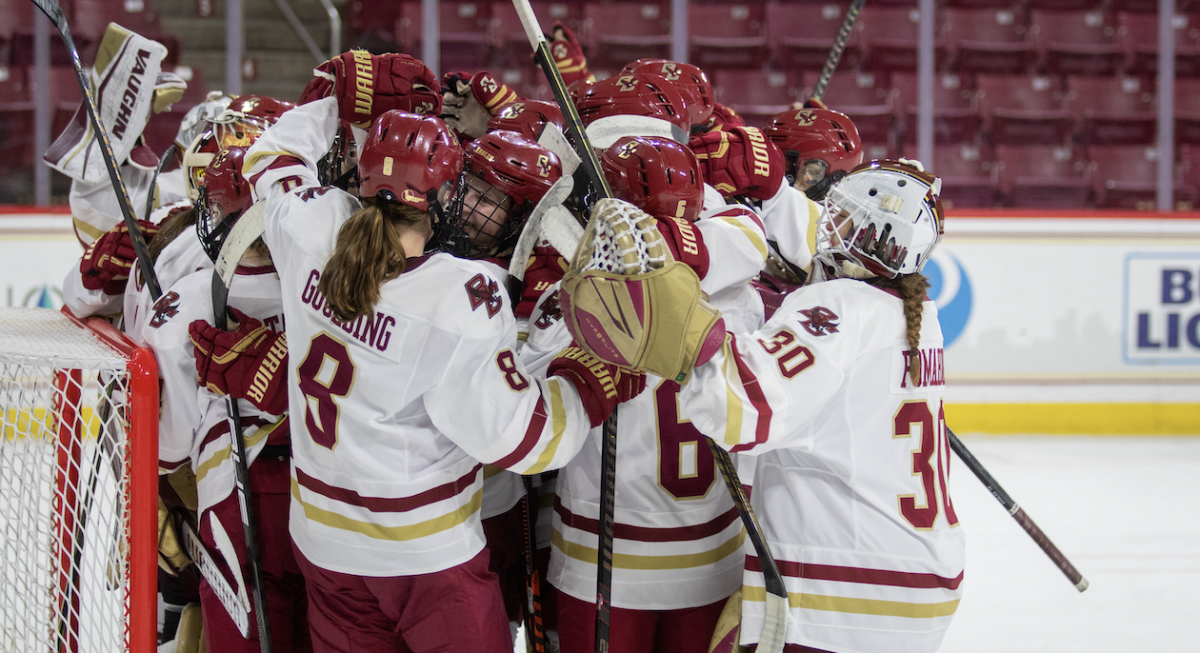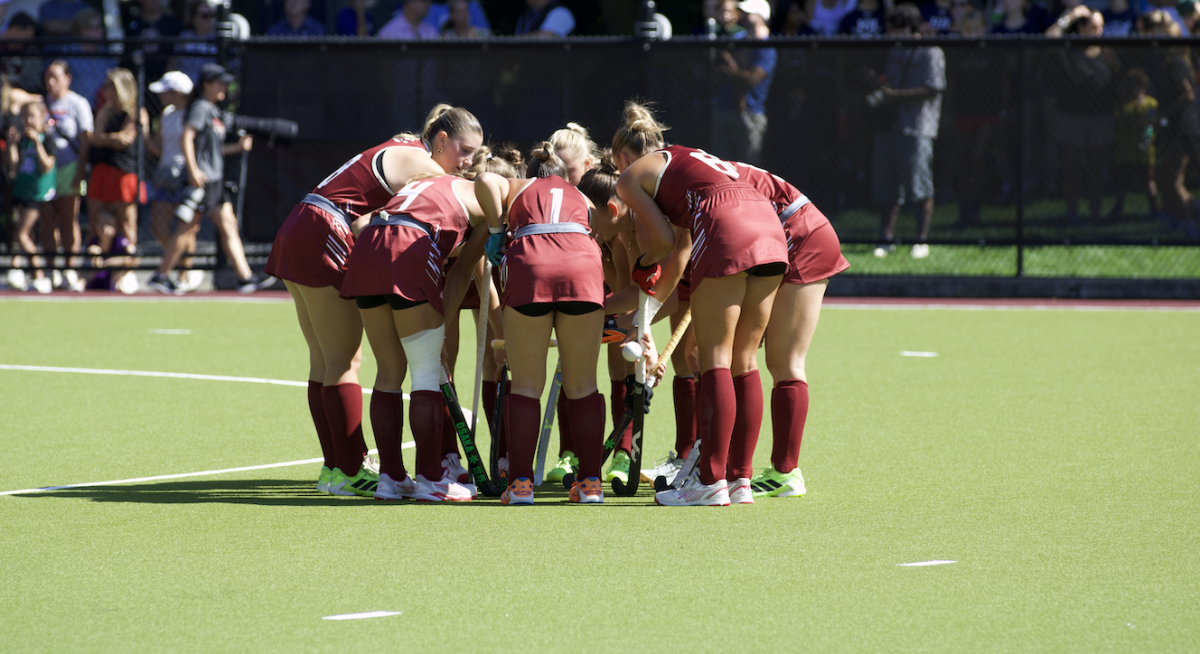Boston College football suffered its first loss of the season on Saturday night. Here are some key observations from the defeat:
Tackling Troubles
The Eagles’ tackling abilities were far from being on full display in their loss to Michigan State, and it didn’t help that quarterback Aidan Chiles looked closer to a Heisman candidate than the player who threw three interceptions in BC’s win over the Spartans last fall.
Instead of turning the ball over, Chiles was crashing through BC’s defense all night, using his legs to get his team out of tight situations, and ultimately grabbed a win.
The Eagles sacked him four times for 28 total yards lost—not bad, especially compared to the Spartans, who did not sack Dylan Lonergan once. But once Chiles was in the open field, BC looked incapable of stopping him.
At times, it looked a little like an unevenly matched game of tag—only the playground was a field full of blockers trying to keep defenders away from Chiles and the ball.
Nick Marsh also took advantage of BC’s missed tackles. He scored the first touchdown of the game with Amari Jackson holding onto him like a clingy toddler. Marsh seemed unbothered, even when Carter Davis came over to help.
The Spartans rushed for 149 yards—82 more than the Eagles’ 67—and it showed in the loss.
Revitalizing the Rush
On that note, the Eagles’ running game struggled for the second week in a row.
Turbo Richard was the leading rusher for BC, picking up 55 yards and averaging 4.2 per carry. Aside from an early fumble, he was rather effective. But the Eagles’ running back room continued to look depleted overall, as Richard and Jordan McDonald made up for all 67 of those rushing yards.
Bill O’Brien said he doesn’t blame the offensive line for that, but even he acknowledged that throwing the ball as much as the Eagles have in the last two games cannot work forever. And, as the Eagles enter winter in Chestnut Hill, who knows if throwing the ball is a sustainable option overall.
It’s unclear how this problem will be fixed. Is it a personnel problem on the running back side of things, or does the offensive line need to be better overall?
Lonergan seemed well protected—he was not sacked, and he threw for 390 yards—but perhaps that fact is overshadowing the improvements that the offensive line needs to make in order for the Eagles’ ground game to gain some steam moving forward.
Mistakes and Miscommunications
It’s no secret that Saturday’s game was not the cleanest in the history of the sport. It was a good game—few would argue that—but both teams made careless mistakes that, if fixed, would have severely changed the trajectory of the game.
Things like kickoff returns, end zone–coverage miscues, and the missed tackles addressed earlier really stood out. But there were smaller things, too—a false start here, a pass interference call there.
Every team makes mistakes. It’s part of the game. But when the game is as close as Saturday’s was, the mistakes that seem tiny, even irrelevant at some points, build up quickly.
It’s an interesting thought exercise to ask what would have happened if BC had made just one more tackle in the middle of the field, or even what would have happened if Richard hadn’t fumbled the ball in the first quarter.
It’s about what BC does with the mistakes from this game—the ones the Eagles fix in practice this week, and the ones that unintentionally become habits—that will determine if a 1–1 record turns into a season-long .500 struggle.

